Clean-up continues in Spain after shock floods cause chaos
Shock in Spain as country suffers flooding disaster
- Published
Rescue efforts are underway in parts of Spain, including the eastern city of Valencia, after heavy rainfall caused intense flooding.
More than 1000 troops have been deployed to help with the rescues and clear up.
There's a lot of damage and some of the affected areas can only be reached by helicopter due to roads being blocked by mud, stones and piled-up cars.
In the city of Jerez hundreds of families have been evacuated from their homes as heavy rain raises river levels.
With more rain expected across some flooded areas, weather warnings remain in place.
Find out more
- Published30 October 2024
- Published2 October 2019
- Published29 August 2022
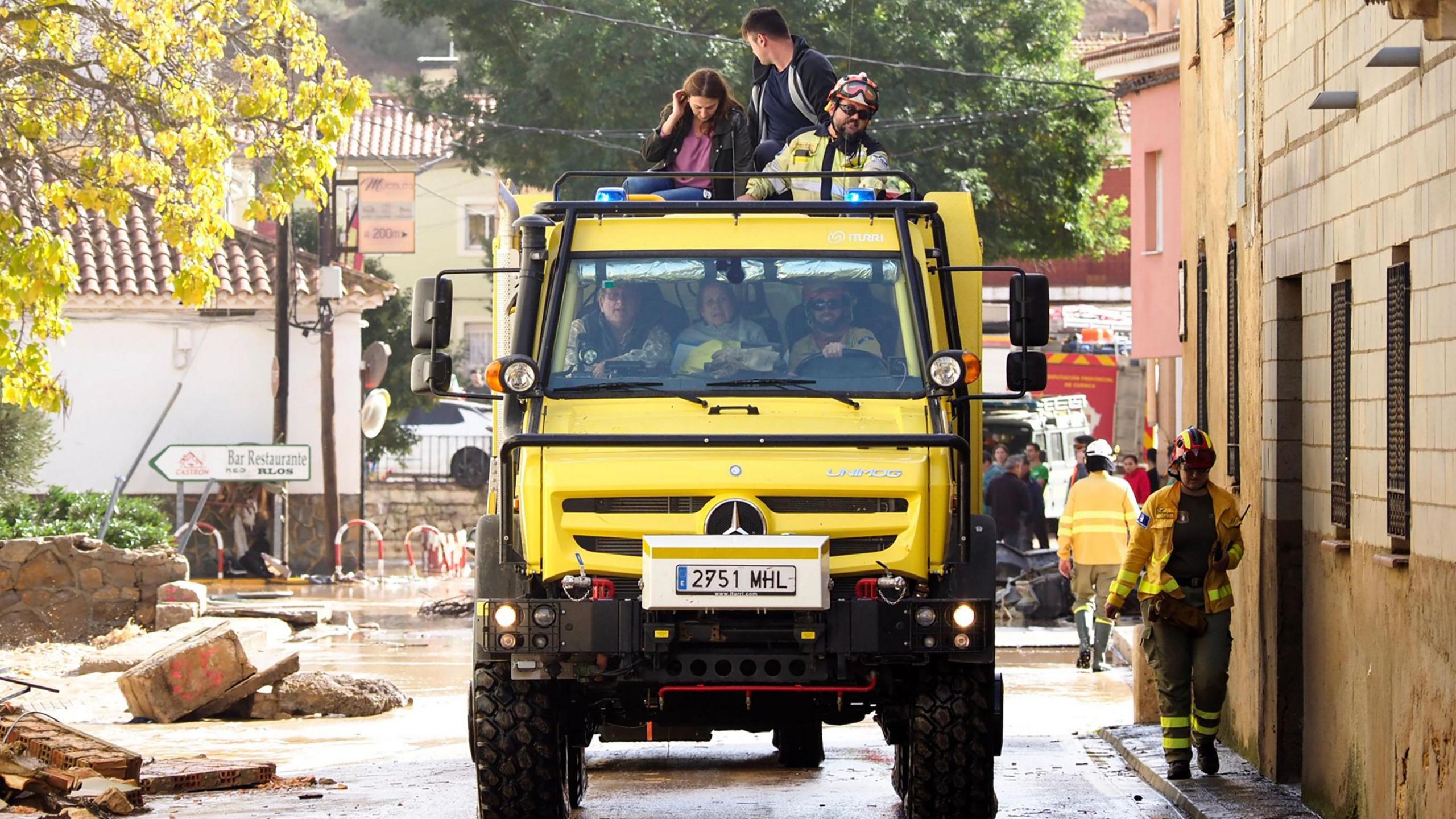
The Spanish army and emergency crews rushed to carry out rescues since Wednesday - including winching people to safety from balconies and car rooftops.
They are now trying to clear roads and get the power back on in thousands of homes.
More than 150 people have died in the floods so far.
Spain began an official three-day national mourning period on Thursday with flags at half-mast on government buildings and minutes of silence held.
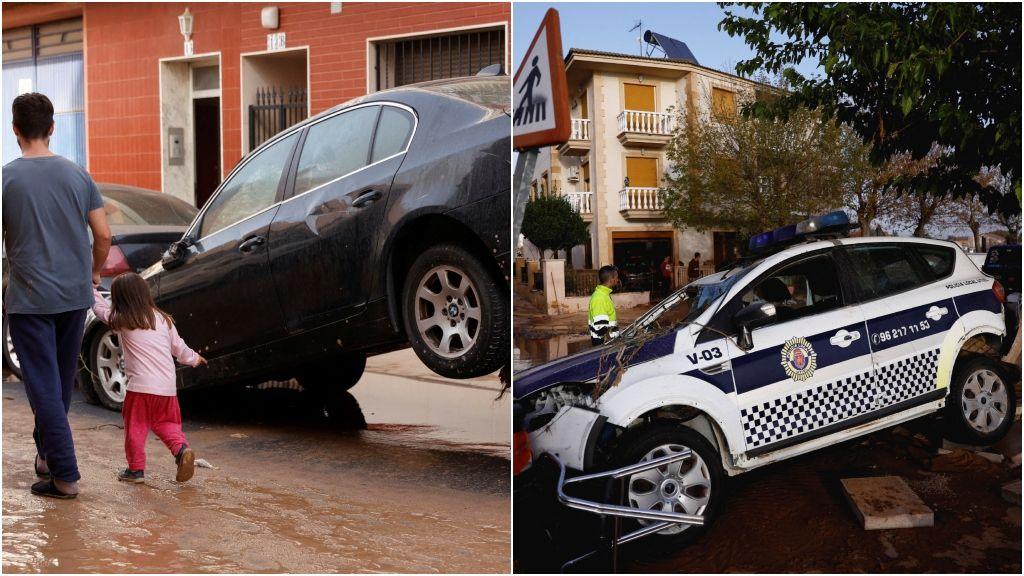
Families coming out of their homes to see the damage have found their cars have smashed into others.
Even police vehicles were moved around by the water.
Many factors contribute to flooding, but a warming atmosphere caused by climate change makes extreme rainfall more likely.
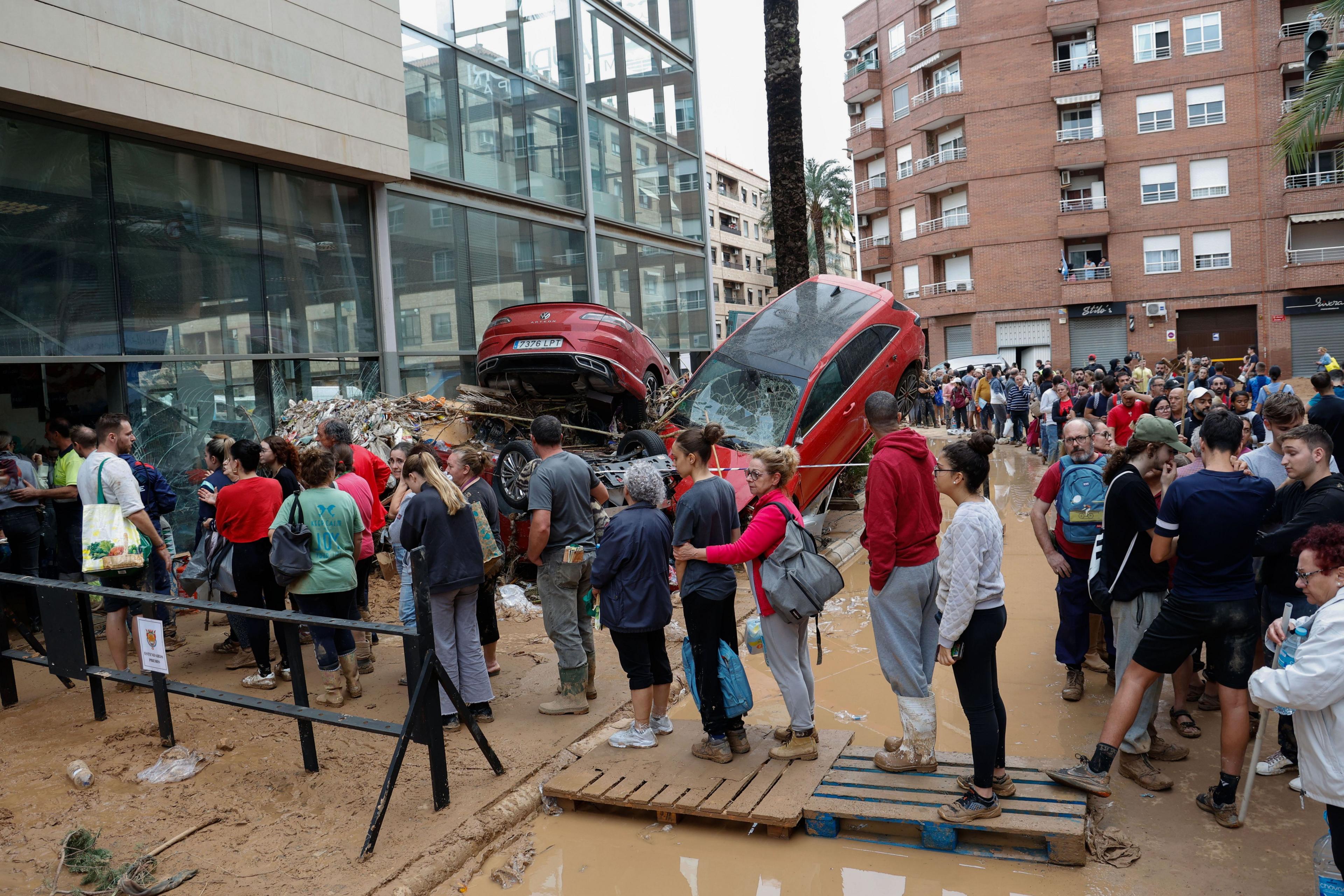
Paiporta
In places that have been very badly hit - like Paiporta near Valencia - people have also been queueing up at shelters to get food and water.
Spanish Prime Minister Pedro Sánchez has told residents of regions including Andalusia, Catalonia and Valencia to be aware, as several weather warnings remain in place.
Experts say more than a year's worth of rain fell in just eight hours in some areas on Tuesday.
Weather researchers have identified the likely main cause of the intense rainfall as a “gota fria” – a natural weather event that hits Spain in autumn and winter when cold air descends on warmer waters over the Mediterranean.
However, scientists told the BBC that the increase in global temperatures had led to the clouds carrying more rain.
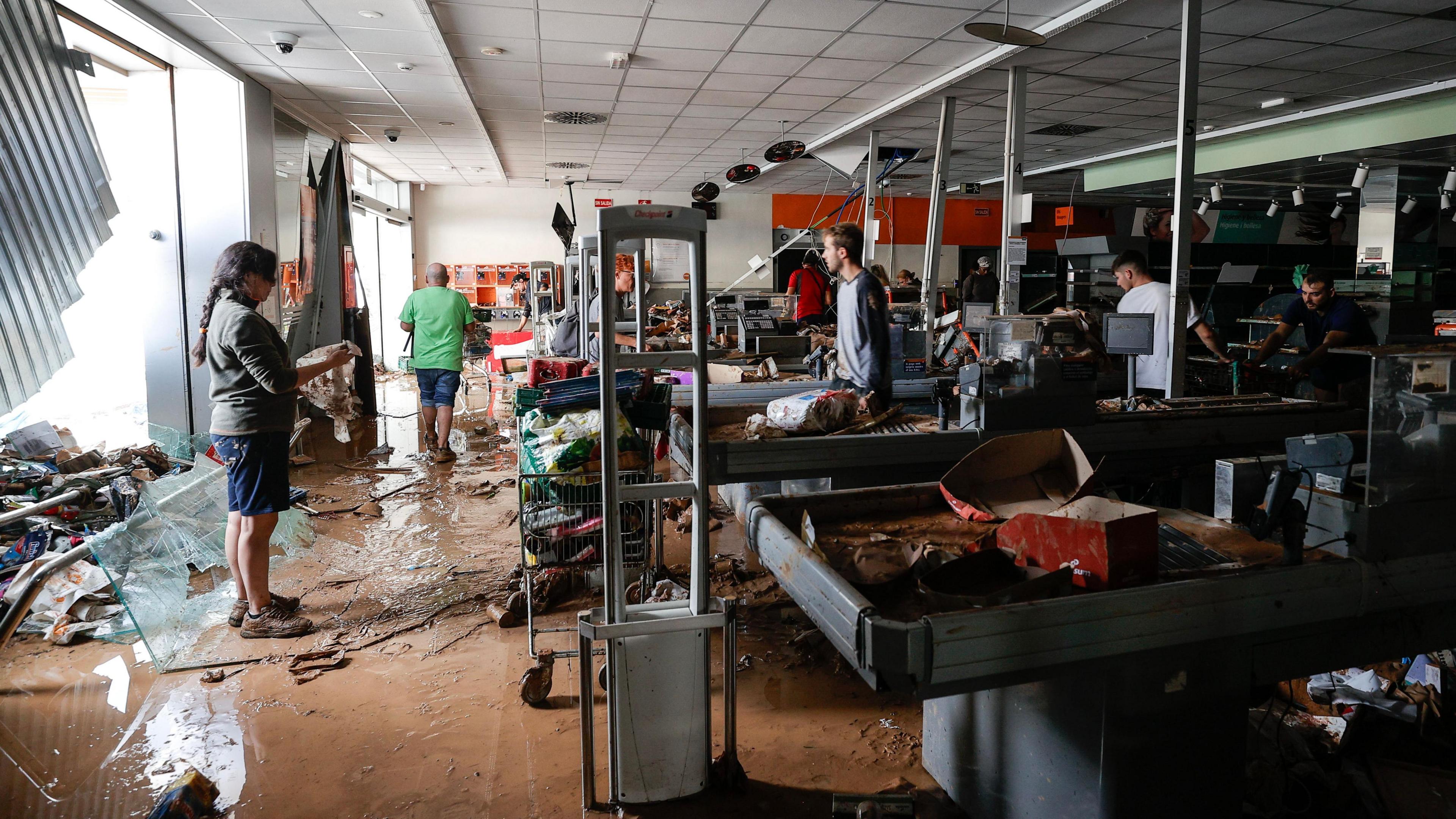
Homes, shops and roads have been badly damaged.
In this supermarket flooding has destroyed the windows, tills and lots of the food inside.
Owners and workers are having to clean up the mess.
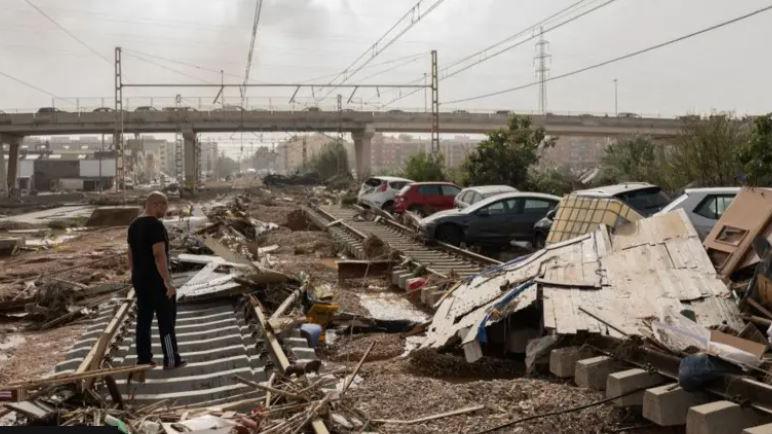
Train tracks have also been wrecked meaning lots of public transport is out of action.
In the big eastern city of Valencia, it's been announced that high-speed train services between the city and the capital, Madrid, have been suspended for at least 15 days.
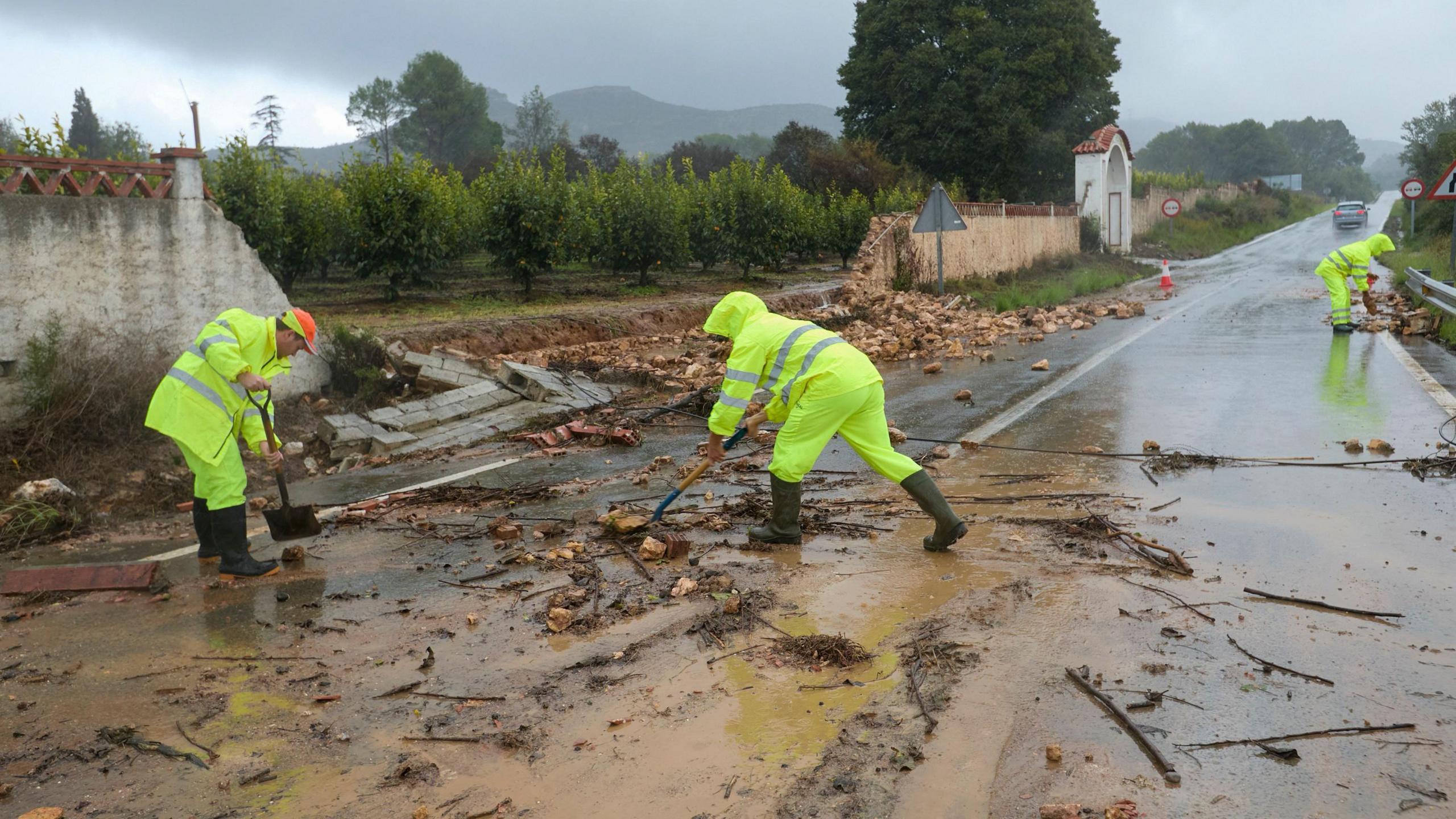
Some people in remote towns and villages have struggled to communicate with the emergency services.
Some have lost power and phone lines are not working.
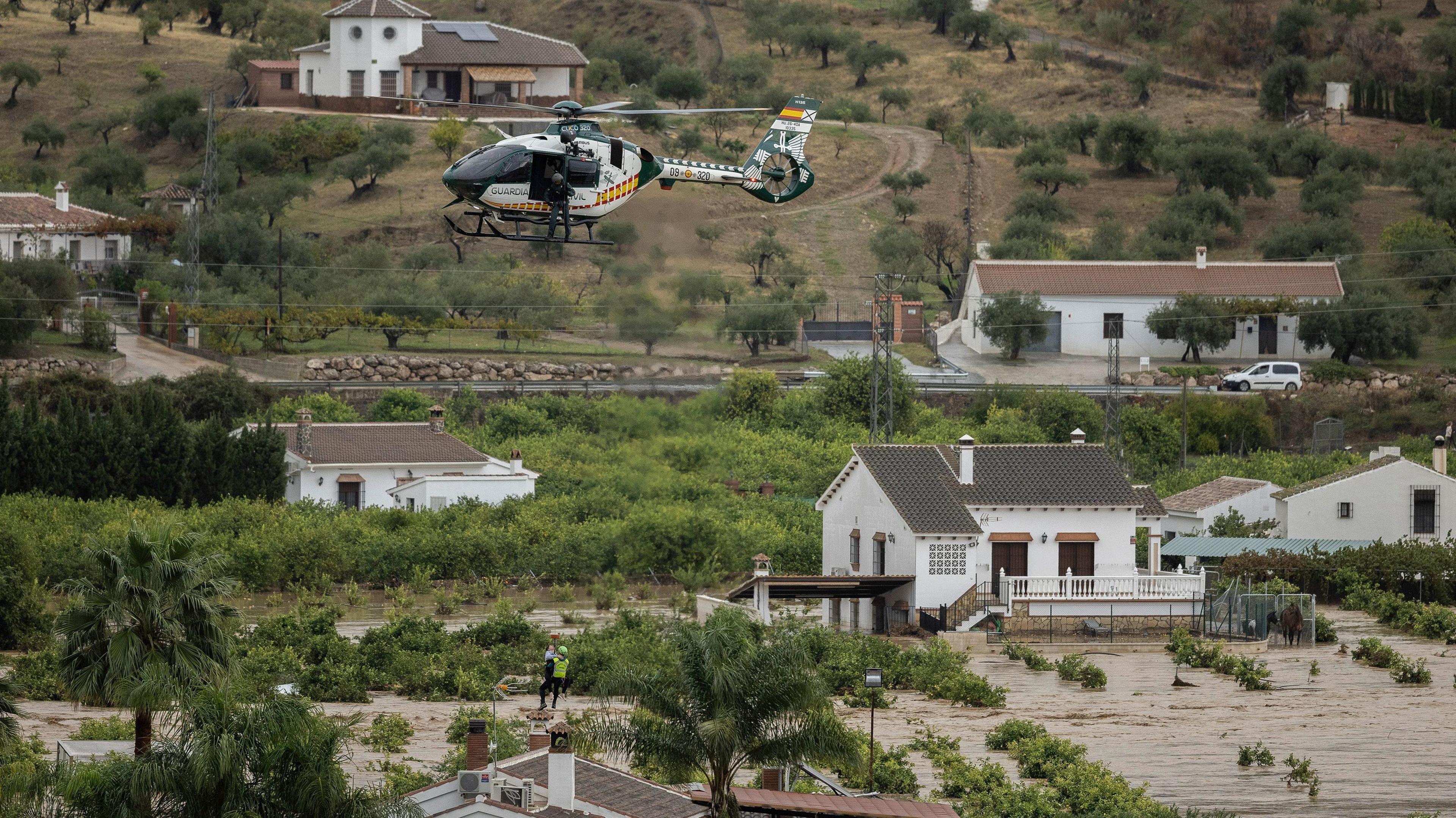
The clear-up operation is underway - and emergency service helicopters are out looking to help people.
But the authorities have also been criticised for not acting quickly enough to warn people about the poor weather.
